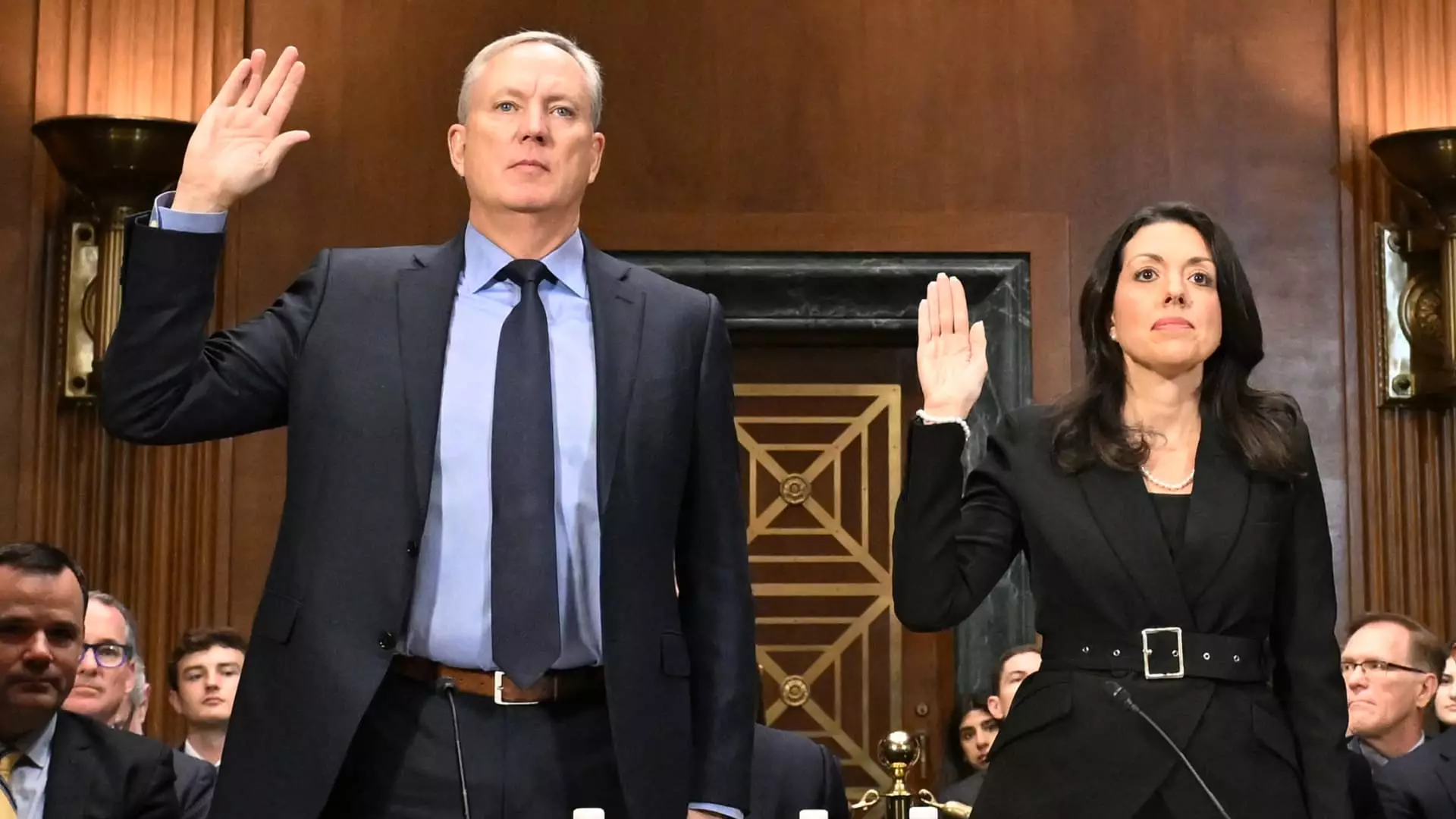The landscape of payment processing in the United States is at a pivotal crossroads as the Senate Judiciary Committee convened to discuss the significant influence of Visa and Mastercard on interchange fees. This dialogue, which resonates bipartisan concern, highlights not only the struggles faced by small business owners but also the intricate dynamics of technology and finance. With credit card fees directly affecting prices for consumers, it is imperative to examine the implications of this alleged duopoly and the legislative solutions proposed to rectify it.
Interchange fees, colloquially known as swipe fees, are the financial transactions that occur between a retailer’s bank and the bank that issued the credit card used for the purchase. Each time a customer swipes a card, merchants must pay these fees, which can substantially chip away at their profits. The committee highlighted that these charges collectively amount to over $100 billion in expenses for merchants in a single year alone, disproportionately affecting small businesses that often operate on thin margins. This monopolistic market structure, primarily controlled by Visa and Mastercard, has raised red flags among lawmakers who view the lack of competitive alternatives as an impediment to fair business practices.
Amidst the growing frustrations of retailers, the proposal of the Credit Card Competition Act reveals a unique political alignment where both conservative and liberal senators advocate for regulatory change. Spearheaded by Senator Dick Durbin and co-sponsored by Senator Roger Marshall, this initiative aims to empower merchants by mandating that banks with substantial assets offer alternatives to Visa and Mastercard on payment cards. This legislative action aspires to level the playing field, granting small businesses much-needed choices that could help mitigate the steep costs associated with credit card transactions.
Durbin envisions a scenario where retailers can opt for more affordable payment networks, potentially ushering in a new era of lower operational costs. This shift could not only aid merchants but indirectly benefit consumers, who ultimately bear the brunt of inflated prices driven by high interchange fees. The proposal represents a fundamental challenge to the status quo and has ignited an important conversation regarding the accountability of large financial institutions.
In response, representatives from Visa and Mastercard have mounted a vigorous defense of their fee structures, arguing that interchange fees are necessary to maintain the intricate ecosystem of payment processing. Bill Sheedy, an advisor at Visa, argues that these fees support innovation and security measures which, while incurring costs, ultimately serve to protect consumers and promote reliable transactions. Such assertions stress the importance of maintaining technological advancements in a rapidly evolving market, suggesting that any legislative intervention may inadvertently undermine consumer protections.
Moreover, the opposing view cautions against the unintended consequences of regulatory measures. Mastercard’s leadership pointed to prior legislative efforts, such as the Durbin amendment of the Dodd-Frank Act, as examples of policies that resulted in diminished rewards for consumers, increased banking fees, and stifled growth in the market. This perspective underscores the contentious nature of the debate, where policymakers must weigh immediate benefits against long-term implications for consumer choice and market vitality.
The ramifications of credit card interchange fees extend beyond retailers and technology giants—consumers are inadvertently caught in this battle as well. An analysis by the National Retail Federation emphasized that these fees contribute to inflated prices across a range of goods and services. Consumers may not immediately recognize the impact of these fees, but as the costs trickle down through supply chains, they manifest in higher prices at the checkout.
Recent findings reveal that the average American spent around $1,100 on swipe fees last year, an astounding figure that eclipses expenditures on prevalent categories like pets or coffee. This prompts a critical consideration: as a society, how can we effectively balance the scale of commerce while ensuring equitable access to financial services?
As the Senate deliberates over the Credit Card Competition Act, the stakes remain high for all parties involved. The call for reform not only signifies an urgent need for a fairer payment processing landscape but also reflects the ongoing tension between regulation and free market practices. The challenge lies in crafting effective policy that mitigates the stranglehold of Visa and Mastercard without stifling innovation or consumer choice.
While the current political climate may foster a rare consensus on addressing these issues, the complexity of financial systems demands thoughtful legislation. The outcome of this debate will undeniably shape the future of how consumers and businesses alike engage with credit services, making it a vital moment in the history of American commerce. As discussions evolve, the imperative remains: ensuring a transparent and fair payment landscape for both retailers and consumers.

